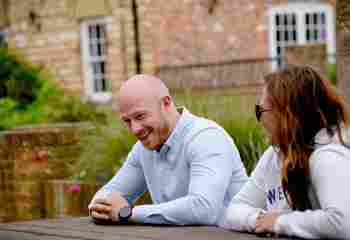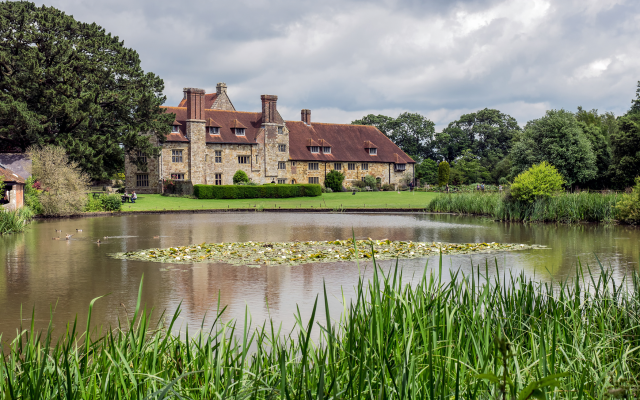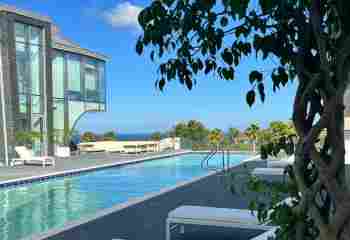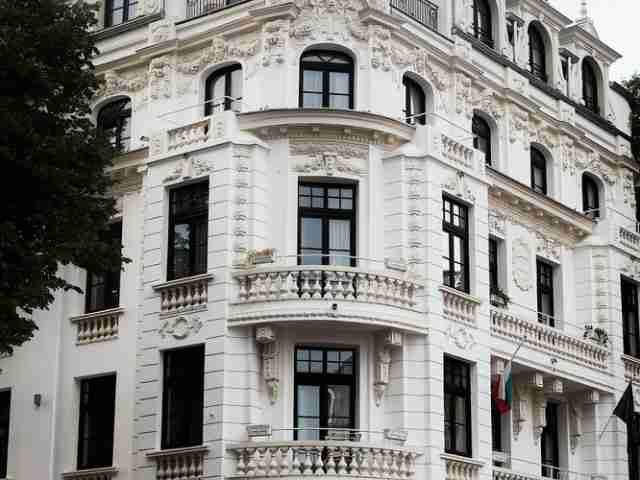More About Rehabs with Acupuncture Treatment
Acupuncture is becoming a complementary treatment in many types of addiction recovery programs. Auricular or ear acupuncture is a popular form of this treatment that involves shallow insertion of a thin needle at various points on the skin of the external ear to help ease withdrawal symptoms and reduce cravings.
What Is Acupuncture?
Acupuncture originated in China and involves inserting needles into the skin in specific locations. It is used as a complementary and alternative treatment for a number of physical and mental ailments, including drug and alcohol addiction.(1) The Chinese have used acupuncture for centuries. But it has recently become a common practice in Western countries as well.(1)
How Does Acupuncture Work?
Auricular or ear acupuncture is the most popular form of acupuncture used to help people with addiction.(1) The acupuncture specialist inserts a thin needle into the person’s ear and targets 5 specific areas:(1,2)
- Lung Point: improves lung function and alleviates feelings of grief.
- Liver Point: removes toxins from the liver and blood, and curbs aggression.
- Kidney Point: repairs vital organs and eases fears.
- Shen Men: decreases anxiety – also known as the “spirit gate.”
- The Autonomic (or Sympathetic) Point: promotes relaxation and soothing of the nervous system.
Acupuncture is based on the idea that the human body has meridians spread throughout it. When these are stimulated, they can increase the flow of Qi (life energy). Organ function is believed to improve when it becomes unobstructed.(1)
Is Acupuncture Effective?
While the research behind acupuncture has mixed results, it’s an ancient Chinese medicine that has stood the test of time. Acupuncture can provide great benefits, or there is a possibility to experience a placebo effect. Some studies have suggested that patients may experience symptom relief because they have positive expectations; however, this does not necessarily mean that acupuncture is ineffective. It all depends on a few factors, like the quality of the practitioner, how it’s combined with other therapies, and your condition(s).
Does Acupuncture Help in Addiction Treatment?
Acupuncture is both safe and cost-effective. When combined with other forms of treatment, such as individual therapy, group counseling, and support groups, it can benefit those suffering from a substance addiction.
Goals of Acupuncture
Proponents of acupuncture claim that the practice can:(1)
- Help reduce cravings.
- Increase patient retention in rehab.
- Ease unpleasant withdrawal symptoms.
- Ease physical pain.
- Help the person regulate emotions.
- Decrease anxiety and stress.
- Help regulate sleep.
Benefits of Acupuncture for Drug and Alcohol Addiction Recovery
It’s not fully understood how acupuncture works. But it is believed to affect the dopaminergic system in the brain. Drugs positively reinforce continued use by inducing feelings of pleasure and euphoria and negatively reinforce it by suppressing withdrawal symptoms, such as dysphoria. Acupuncture is believed to decrease the positive and negative reinforcements of addiction and therefore reduce drug and alcohol use.(1)
Acupuncture treatments are thought to reduce the positive reinforcement properties of drugs by decreasing the amount of dopamine released when the drug is used. Without the surge of dopamine, the person’s “high” or “buzz” is diminished, and he or she is less likely to use the drug in the future.(1)
Conversely, it is believed that acupuncture treatments decrease the withdrawal properties of drugs, such as dysphoria and distress, that serve to negatively reinforce continued drug use (since an individual might otherwise disrupt withdrawal with more of the misused drug), by inhibiting gamma-aminobutyric acid (GABA) neurons and increasing the release of dopamine. This flood of dopamine into the nucleus accumbens in the brain can improve mood and alleviate withdrawal symptoms.(1)
Research is mixed on acupuncture’s effectiveness in treating drug and alcohol addiction. Acupuncture also appears to be more effective at treating certain substance addictions than others.
- One study revealed that acupuncture helped to alleviate opioid withdrawal symptoms. But it didn’t benefit those withdrawing from alcohol or cocaine.(3)
- An additional study didn’t find any positive correlation between acupuncture treatment and recovery from cocaine addiction.(4)
- Clinical trials revealed that acupuncture helped ease alcohol withdrawal symptoms in rats, which could pave the way for future research in humans suffering from alcohol addiction.(5)
Use of Acupuncture in Addiction Treatment Programs
Holistic recovery centers are designed to treat the whole person by improving physical, mental, emotional, and spiritual health. The treatments provided at these rehab centers are considered alternatives to mainstream or traditional treatments, such as counseling, therapy, and medication.
Holistic recovery centers, as well as other rehabs, may incorporate acupuncture into their treatment programs. This alternative treatment can be a part of an individualized treatment plan that addresses a person’s specific needs for recovery and mental health. Acupuncture is not a standalone treatment for a substance addiction. It is used in combination with other recovery strategies, such as psychotherapy, 12-step programs, group counseling, or other alternative and complementary treatments, such as art or music therapy, meditation, nutritional counseling, exercise programs, or yoga.
Group and Individual Treatments
In treatment facilities, staff who are certified in the National Acupuncture Detoxification Association (NADA) protocol will often administer auricular acupuncture. NADA has created a standardized treatment protocol for acupuncture and provides acupuncture training to medical and mental health professionals.(7) The treatment typically lasts for about 30 minutes or more while the person is in a relaxed state.(2) It can be given in group settings where people sit quietly together while needles are inserted into the 5 specific points in the ear. Some centers may conduct individual acupuncture treatments as well.
Remember that everyone’s journey in recovery is unique. What works well for one person might not work the same for another. The key is to maintain open communication, prioritize evidence-based treatments, and approach complementary therapies like acupuncture as part of a holistic approach to health and healing.






















































































